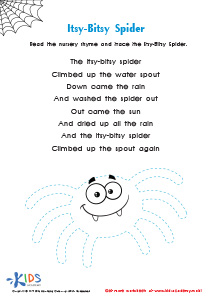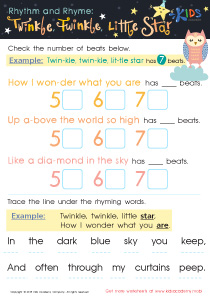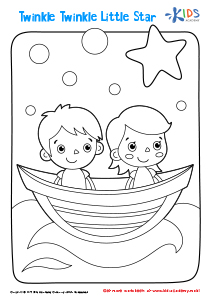Nursery Rhymes Worksheets for Ages 4-9
5 filtered results
-
From - To
Discover a world of fun and learning with our Nursery Rhymes Worksheets for Ages 4-9! At Kids Academy, we offer engaging, age-appropriate worksheets that enhance children's literacy and cognitive skills through beloved nursery rhymes. Each worksheet features vibrant illustrations, easy-to-follow instructions, and interactive activities that captivate young minds. Perfect for both parents and educators, our resources support early reading, writing, and comprehension, making learning both enjoyable and effective. Build a strong educational foundation while nurturing a love for classic rhymes. Explore our collection today and watch your young learners thrive!
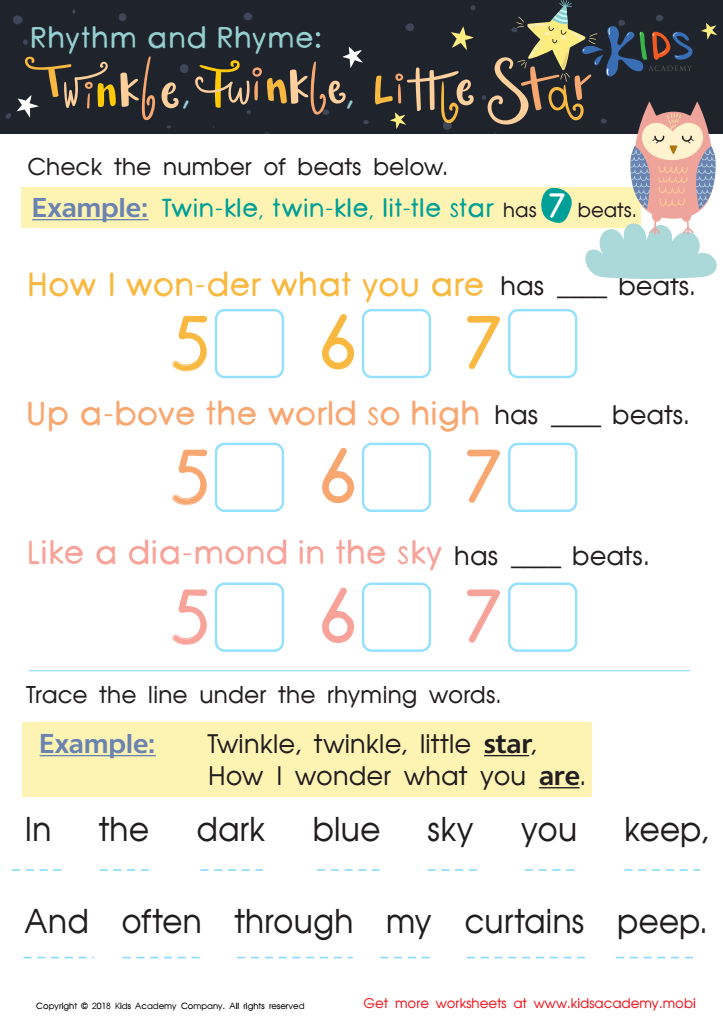

Rhythm and Rhyme: Twinkle, Twinkle, Little Star Worksheet
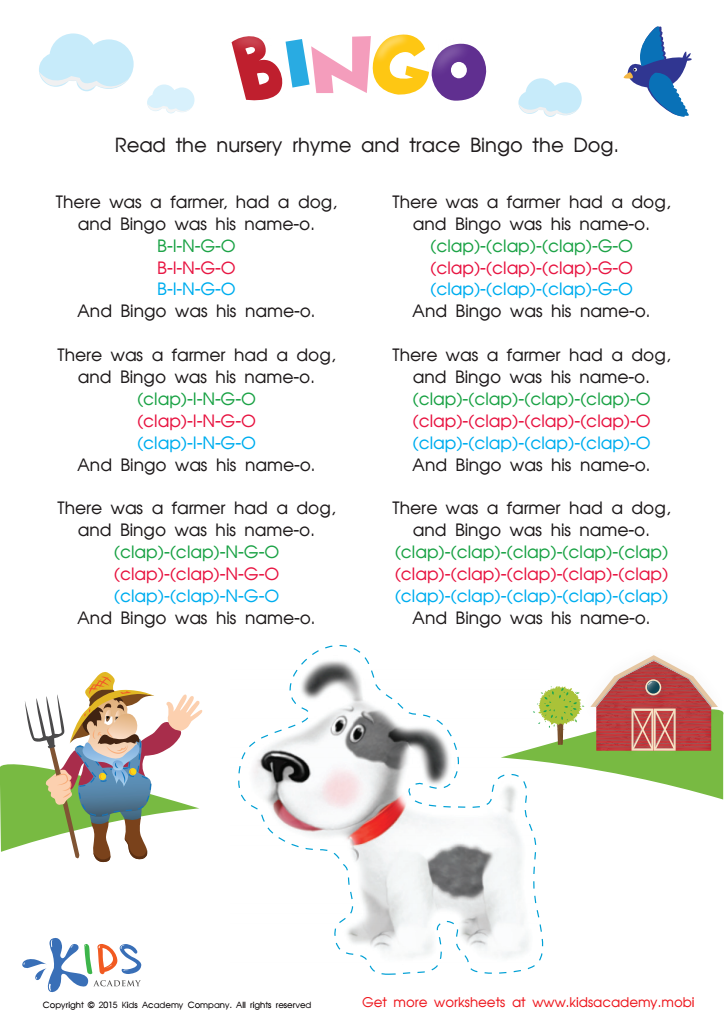

Nursery Rhymes: The Bingo Song Worksheet


The Five Little Monkeys Nursery Rhyme Worksheet
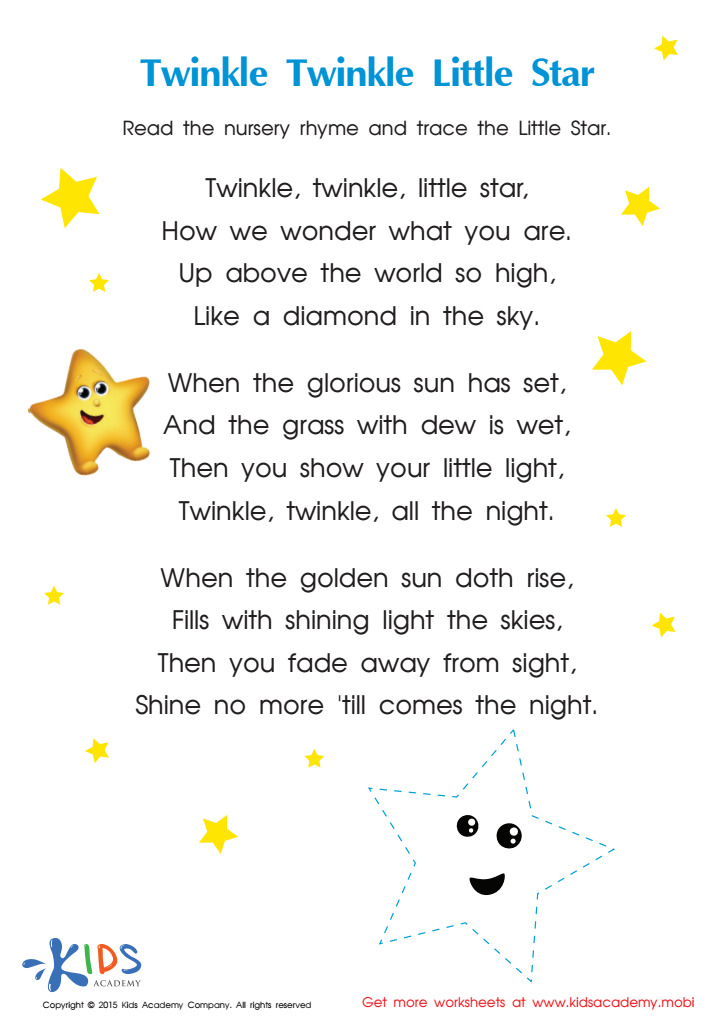

Nursery Rhymes: Twinkle Little Star Worksheet
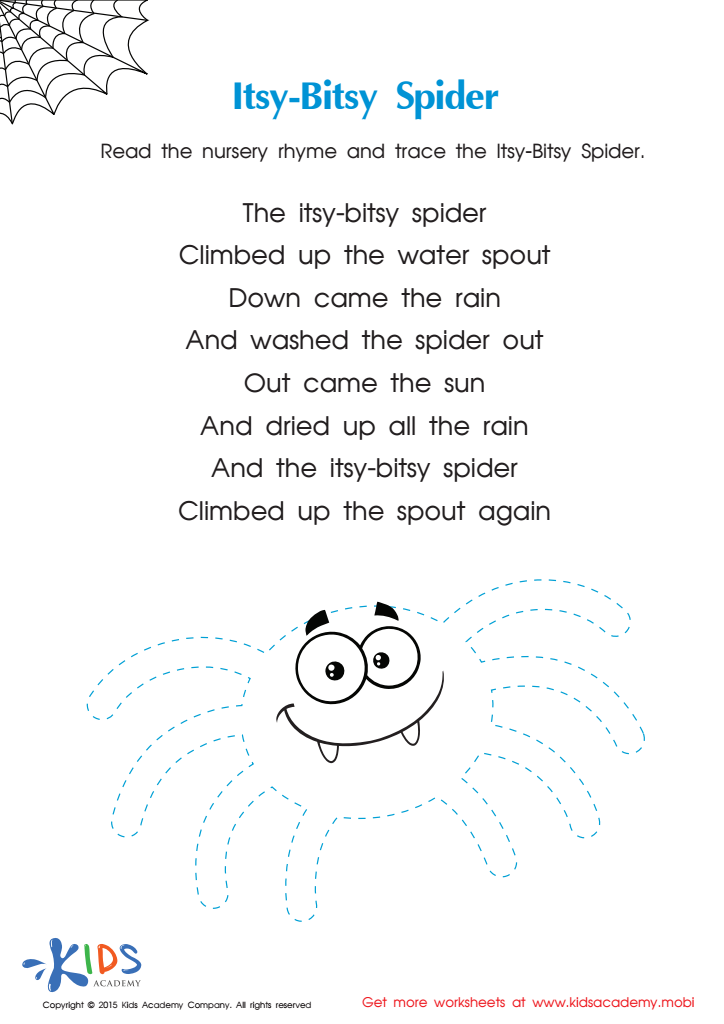

Itsy Bitsy Spider Nursery Rhyme PDF Worksheet
Nursery rhymes possess a magical charm and immense educational value for children ages 4-9. They are more than just amusing little songs; they are powerful tools for cognitive, linguistic, and social development. For young minds, catchy rhythms and repetitive lyrics are critical in enhancing memory and recall skills. These rhymes introduce children to phonemic awareness by showcasing various sounds and syllables, aiding in future reading and spelling proficiency. They also expand vocabulary and enhance comprehension abilities through simple narratives and diverse characters.
Moreover, nursery rhymes create a strong foundation for understanding rhyme and rhythm, key components of early literacy. Reciting rhymes enhances speech development and encourages expressive language skills by providing a playful way to practice enunciation and intonation. This linguistic practice builds confidence and fosters a love for reading and storytelling.
From a social perspective, sharing nursery rhymes cultivates emotional bonds between parents, teachers, and children, creating joyous and engaging learning experiences. Furthermore, the communal aspect of singing and reciting together fosters cooperative play, teaching children the importance of taking turns, listening, and participating in group activities.
Thus, nourishing young minds with nursery rhymes is an essential educational practice. It ensures that the foundational skills necessary for academic and personal success are instilled in a joyful and meaningful manner.

 Assign to the classroom
Assign to the classroom






